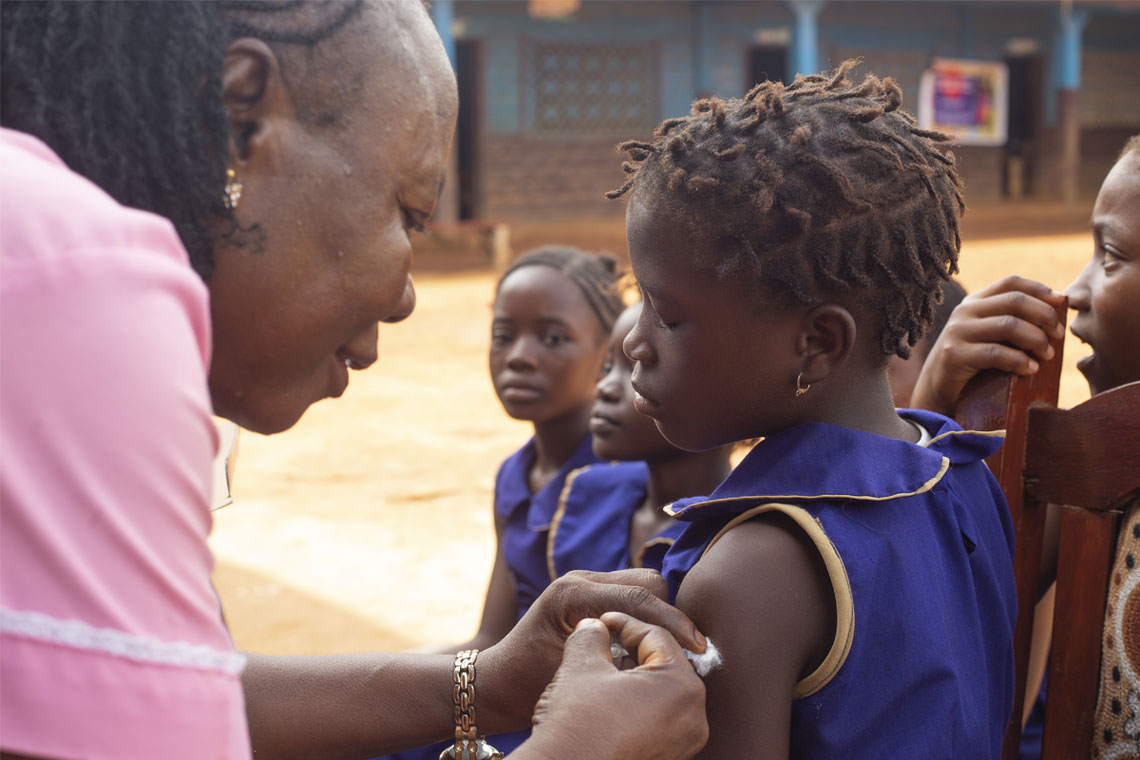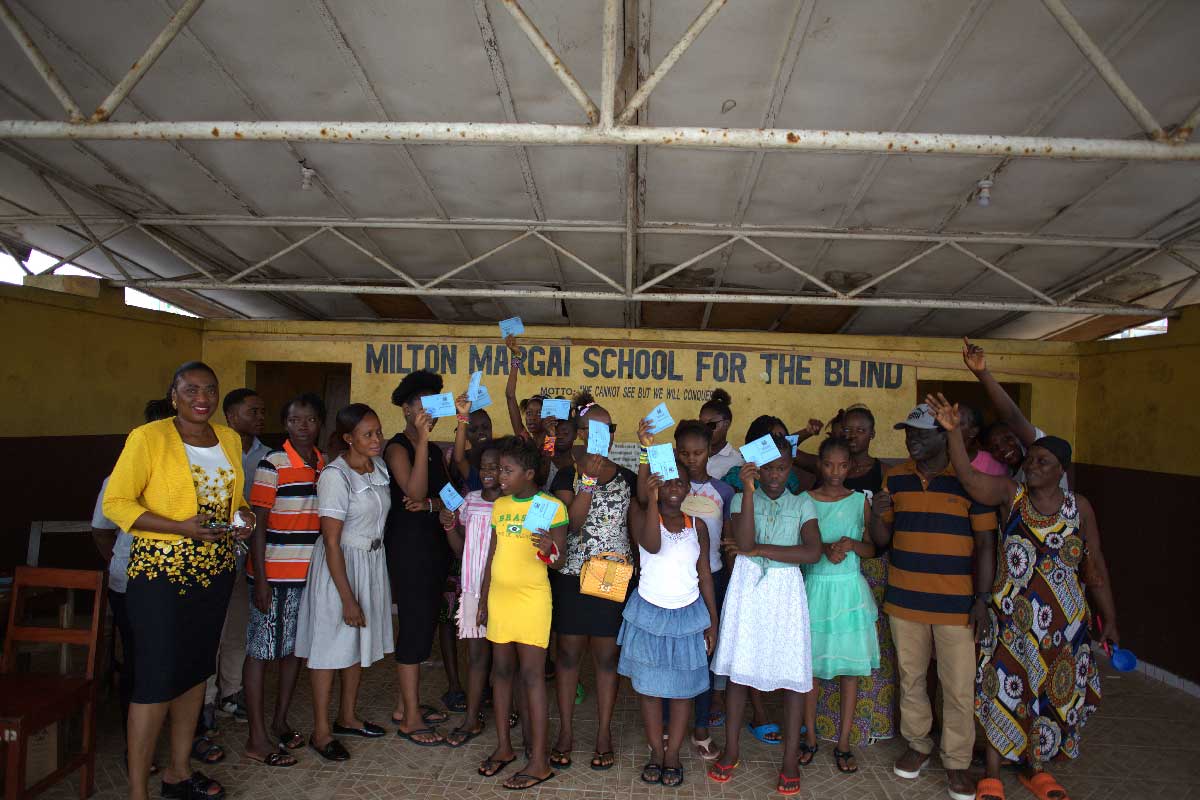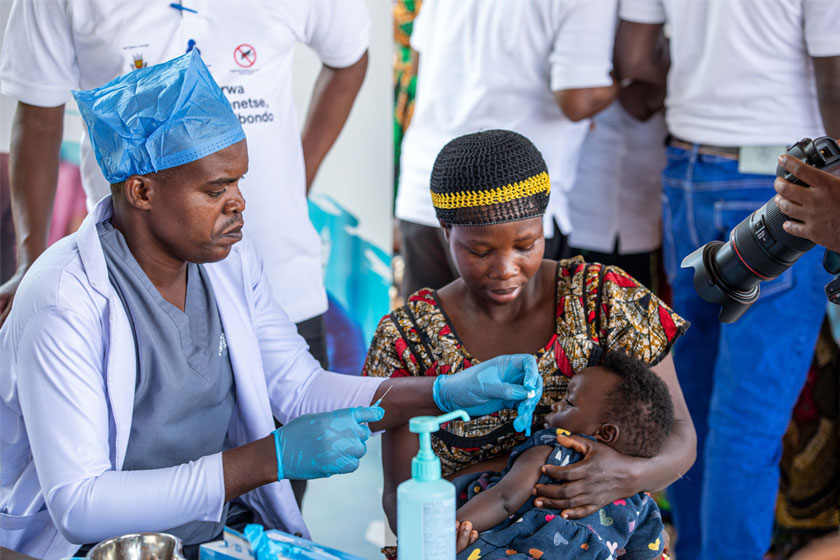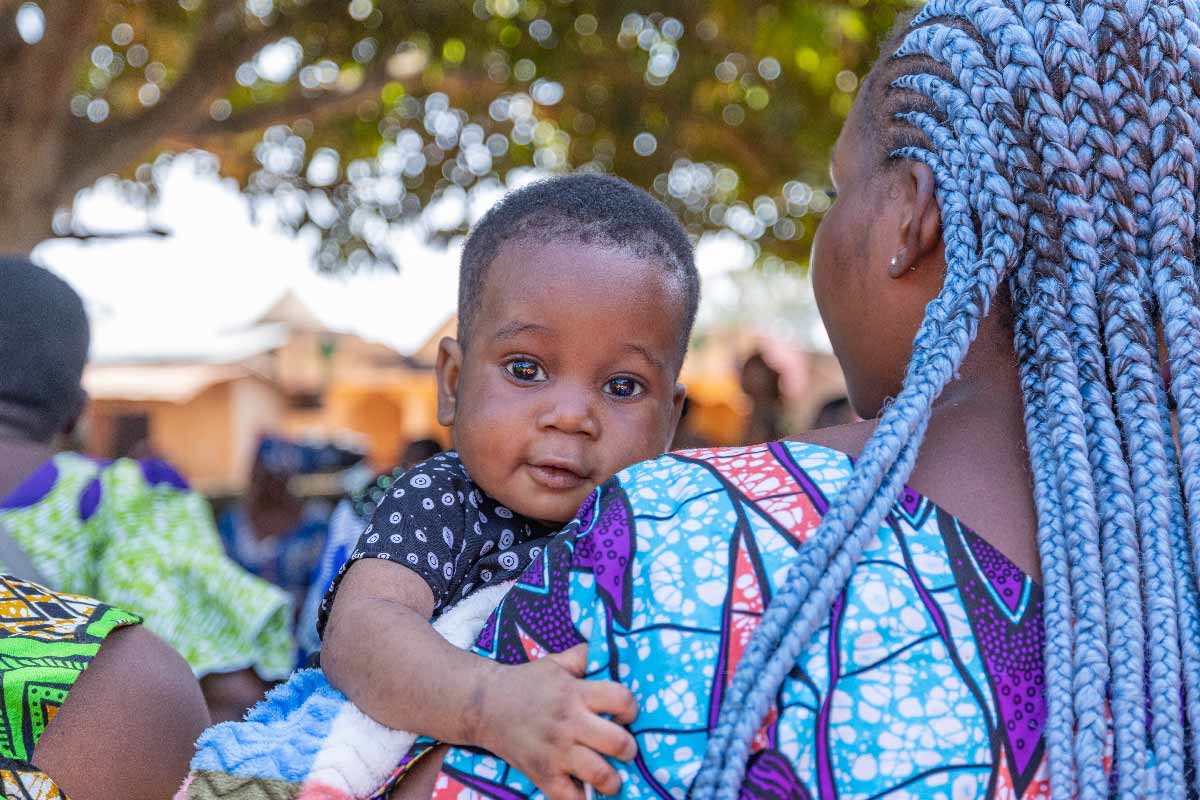COVID-19: why we can’t use antibody tests to show that vaccines are working
Many COVID-19 antibody tests are not designed to specifically detect antibodies that develop as a result of vaccination, and thus cannot show whether antibodies are of the right quantity or quality for protection against infection or illness.
- 17 August 2021
- 6 min read
- by Gavi Staff
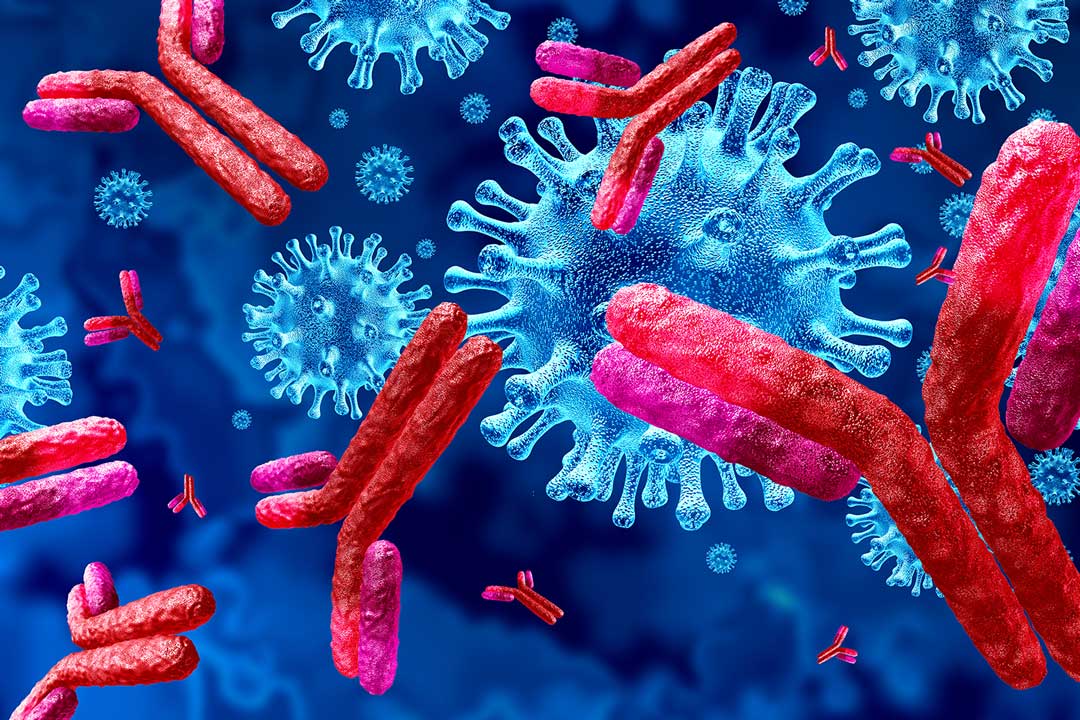
Since vaccines cause the immune system to generate antibodies, you might think that an antibody test could be used to confirm that your COVID-19 vaccine has worked. But it isn’t that straightforward. Antibodies are created by the body’s immune system in response to infection, either when we are infected or when a vaccine shows us part of the pathogen to trick our bodies into thinking we're infected. Antibody tests (also called serology tests) look for antibodies in a blood sample to determine whether a person has had a previous infection. A positive antibody result does not always guarantee that a person is protected and a negative result does not necessarily mean that they are unprotected.
For most people, there is no need to test for antibody after vaccination. As with other vaccines, such as for measles or polio, a wealth of data from clinical trials and ongoing vaccination programmes provides confidence that COVID-19 vaccines protect, with no need for individual confirmatory antibody testing.
HOW COVID-19 ANTIBODY TESTS WORK
Viruses, like all living organisms, are composed, in part, of proteins. SARS-CoV-2, the virus that causes COVID-19, is comprised of at least 29 proteins. When a person is infected, their immune system generates antibodies to many of these different proteins. However, many vaccines trigger antibodies to only a limited number of proteins. Most COVID-19 vaccines are designed to induce antibodies only to the spike protein, a key molecule that is found on the surface of the SARS-CoV-2 virus and helps it to enter host cells and spread throughout the body.
COVID-19 serology tests were generally designed early in the pandemic to detect only a few antibodies generated by natural infection, but not by vaccination. Many of the tests target antibodies not to the spike protein, but rather to the nucleocapsid protein that forms the shell enclosing the virus’ genetic material. As such, a person who has received a COVID-19 vaccine but has not been infected with SARS-CoV-2 may have a negative serology test if the test used does not detect the type of antibodies induced by the vaccine they received. In addition, it takes around two weeks for the body to generate antibodies after COVID-19 vaccination, so even tests to detect the “right” antibody could be negative in the first few weeks after vaccination. As a result, a negative serology test could be misleading by indicating that someone does not have antibodies to SARS-CoV-2 after vaccination when in fact they do or will soon. Conversely, positive serology tests after vaccination may provide a false sense of reassurance.
Current SARS-CoV-2 antibody tests have not been evaluated to assess the level of protection provided by an immune response to COVID-19 vaccination. Rapid antibody tests only show whether or not antibodies are present, without providing any quantitative information. Scientists have not yet established the ‘correlates of protection’ – the exact concentration of antibodies required to prevent infection or illness – so even a positive antibody test can’t definitely confirm that someone is protected. In other words, just because someone has a positive antibody test, that does not automatically mean that their level of antibodies is high enough to protect against COVID-19 infection. Furthermore, antibodies vary in their ability to neutralize virus –a property not measured by routine anybody tests. Lastly, antibodies are not the immune system's only form of protection against a future threat. Various types of white blood cells contribute, for example, by remembering the pathogen so that a faster response can be triggered next time.
Have you read?
Since many antibody tests are not always reliable in indicating whether or not someone is protected against COVID-19, organisations such as the United States Food and Drug Administration have recommended that antibody tests should not currently be used to evaluate a person’s level of immunity or protection from SARS-CoV-2 infection. Misinterpretation of COVID-19 serology tests can lead to a false sense of protection, causing people to disregard proven prevention measures, as well as to make false conclusions about vaccine efficacy that may influence others to refuse vaccination, ultimately amplifying the spread of disease.
WHEN SHOULD THE IMMUNE RESPONSE TO VACCINATION BE ASSESSED?
For most people, there is no need to test for antibodies after vaccination. As with other vaccines, such as for measles or polio, a wealth of data from clinical trials and ongoing vaccination programmes provides confidence that COVID-19 vaccines protect, with no need for individual confirmatory antibody testing. Only people with underlying conditions or who are taking medications that suppress the body’s immune system are likely to have an inadequate response to vaccination. The World Health Organization recommends testing after vaccination only for people with symptoms of disease, or for people who have been contacted as part of a test and trace programme. In these instances, molecular testing for the SARS-CoV-2 virus, such as polymerase chain reaction (PCR) testing, would be more appropriate than antibody testing to check for new SARS-CoV-2 infection.
ANTIBODY TESTS FOR SCIENTIFIC RESEARCH
If COVID-19 antibody tests can’t currently be used to assess an individual’s immune response, then what are they used for? To date, the main use for these tests has been for ‘serosurveillance studies’, in which large numbers of people in a population are tested so that scientists can estimate how many were infected in the past and calculate how fast the virus spread. These kinds of studies can give us an idea of the general level of COVID-19 immunity in a population and help to inform public health measures and predict the future course of the pandemic. The World Health Organization recommends that interpretations of antibody tests should always be made by an expert.
Studies are also exploring potential future uses of antibody testing to guide immunization decisions – an exciting space to keep an eye on.
Authors
- Daniel Bausch, Director of Emerging Threats & Global Health Security, FIND
- Lee Hampton, pediatrician and medical epidemiologist, Gavi
- Mark Perkins, Team Lead, Laboratory Networks, WHO
- Melanie Saville, Director of Vaccine Research & Development, CEPI
